Barracas Central’s journey from playing in Argentina’s fourth division to a leading position in the top flight has been remarkable. However, the club’s rapid ascent has created controversy, with opposition fans alleging refereeing favouritism thanks to its close ties to power.
The humble team from the Barracas neighbourhood in Buenos Aires has evolved under the leadership of Claudio ‘Chiqui’ Tapia, who served as its president from 2001 to 2020 and has been the successful head of the Argentine Football Association (AFA) since 2017.
Tapia holds unquestioned authority in the land of Diego Maradona – he is celebrated for guiding the national team, led by Lionel Messi, through its most successful era, winning the 2022 World Cup in Qatar, Copa América titles in 2021 and 2024 and the 2022 Finalissima.
But apparent refereeing advantages in favour of Tapia’s former club, many of which have gone viral on social media, are a recurring theme in the sports press. The claims cast a shadow of doubt on the success of a team which has had little sporting relevance in more than a century since its founding.
Last week, controversy erupted again over unawarded penalties and questionable sendings off for Barracas Central’s opponents in the Clausura tournament. With two matches remaining, the team sits fourth in Group A, hopeful of securing a spot in the play-off qualification zone.
The most shocking case was the revocation of Nicolás Lamolina's decision to referee a match days after he expelled Barracas midfielder Iván Tapia, son of Chiqui, in the 3-1 defeat against Boca Juniors on October 27.
"The story being told isn't the real one," argues the Barracas coach, Rubén Darío Insúa. "Every time Barracas loses, nobody asks me about the refereeing."
‘Despotic impulses’
Barracas Central was a major force in amateur football in the first decades of the 20th century, but then fell into the lower levels, where El Guapo made little impact for almost eight decades.
The club’s trajectory shifted when Tapia – who has criticised the rumours pointing to alleged favoritism by officials – joined its ranks, first as a footballer in the early 1980s and 20 years later as a manager and director, with the institution in crisis and very close to falling to the fifth division.
Cristian Grosso, co-author of the book Pesadilla, retratos de un fútbol en crisis ("Nightmare, Portraits of a Football in Crisis"), said in an interview that Barracas is "the dream of a man with despotic impulses: Claudio 'Chiqui' Tapia, who has little interest in transparency.”
In 2001, at the request of several members of the organisation, Chiqui – then only 33 years old – assumed the club’s presidency. He prevented a financial collapse and brought in the powerful teamsters' union, led by his then father-in-law, the union leader Hugo Moyano, as a sponsor.
After seven seasons, Barracas had moved up to the third division and its fans were asked to name the newly remodelled stadium, located in the south of Buenos Aires. With capacity quadrupled to 12,000 spectators, it was given the moniker “Estadio Claudio Fabián ‘Chiqui’ Tapia.”
Progress continued as Barracas moved up to the second flight, finishing top of the division in December, 2021. At that time, the side included Matías and Iván Tapia, Chiqui’s sons, with him firmly installed at the helm of AFA.
Matías, now aged 29, is the current president of Barracas Central.
Echoes of the past
Even then, the side's sudden climb was drawing scrutiny from rival fans, who increasingly believed that Barracas Central was racking up points due to favourable refereeing calls.
El Guapo is now close to qualifying for the 2026 Copa Sudamericana, which would be their first continental appearance.
"Barracas reached the first division amidst a series of refereeing scandals which continue to plague the top flight," says Grosso.
Rather than facing criticism, Tapia has received support from most leaders and has secured his mandate at the AFA until 2028.
Only Estudiantes de La Plata, chaired by former midfielder Juan Sebastián ‘La Brujita’ Verón, and Talleres de Córdoba, have spoken out – although the Cordoba team later rolled back on their comments.
"I would like a little more clarity in the rules," questioned River Plate coach Marcelo Gallardo, after his team defeated Barracas in 2024 despite a highly questionable refereeing performance.
To many, Chiqui's personalistic style is an imitation of the management style of Julio Grondona, the late all-powerful leader of the AFA (1979-2014) and former vice-president of FIFA.
Arsenal de Sarandí, the Grondona family's team and champion of the 2007 Copa Sudamericana and the 2012 Clausura, was also accused of benefitting from refereeing leniency during Grondona's tenure at the AFA.








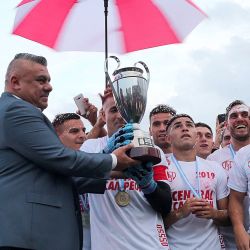
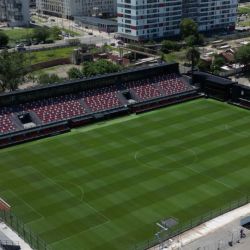
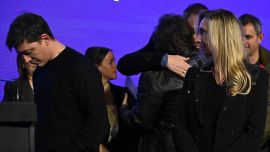

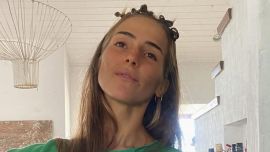







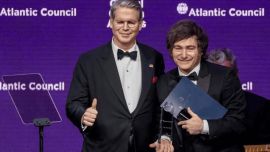

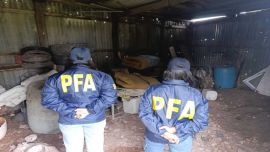
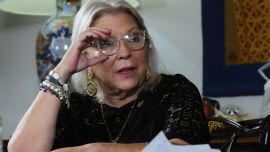
Comments